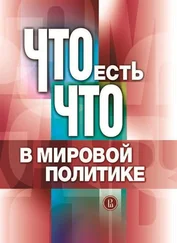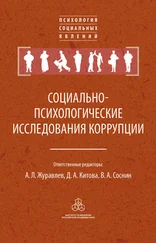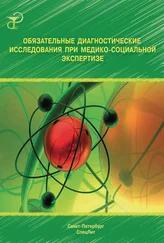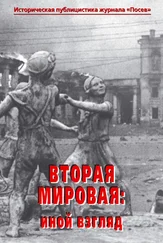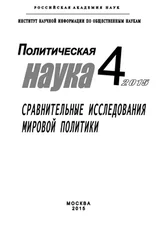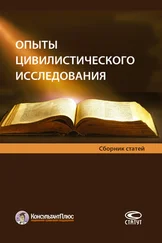Даже если мы примем позднейшее предание (из «Антимаркионитского пролога» к Евангелию от Луки), согласно которому Лука жил в Антиохии Сирийской, – и которое, как мне кажется, представляет собой ничем не подтвержденный вывод из Деян 13:1, – то и в этом случае он должен был бы говорить в основном по-гречески.
Ричард Перво выступает за начало II в. (Richard I. Pervo, Dating Acts: Between the Evangelists and the Apologists [Santa Rosa, Calif.: Polebridge, 2006], с. 359–363), но приводит перечень, в котором, по примерным подсчетам, 31 ученый относит время создания к 60-м гг. I в., 48 – к 70–80-м, 20 – к 90-м, 11 – к 100 г. или к первым десятилетиям II в.
Вероятность эта повышается даже для непосредственных учеников Иисуса, если – а у нас есть все основания так полагать, – большинство их в годы следования за Иисусом были очень молоды: так и бывало обычно с учениками знаменитых учителей в ту эпоху (см., напр.: Иосиф Флавий, Жизнь 10; Плиний, Письма 5.8.8; D. L. Stamps, «Children in Late Antiquity», DNTB , с. 197–201, цит. с. 198).
C. H. Talbert, What Is a Gospel? The Genre of the Canonical Gospels (Philadelphia: Fortress, 1977); R. A. Burridge, What Are the Gospels? A Comparison with Graeco-Roman Biography (SNTSMS 70; Cambridge: Cambridge University Press, 1992); см. также: Philip L. Shuler, A Genre for the Gospels: The Biographical Character of Matthew (Philadelphia: Fortress, 1982); David E. Aune, The New Testament in Its Literary Environment (LEC 8; Philadelphia: Westminster, 1987), с. 46–76; Dirk Frickenschmidt, Evangelium als Biographie: Die vier Evangelien im Rahmen antiker Erzählkunst (TANZ 22; Tübingen: Francke, 1997); Maria Ytterbrink, The Third Gospel for the First Time: Luke within the Context of Ancient Biography (Lund: Lund University – Centrum för teologi och religionsvetenskap, 2004). Craig S. Keener, «Assumptions in Historical Jesus Research: Using Ancient Biographies and Disciples’ Traditioning as a Control», JSHJ 9.1 (2011): 26–58.
Альтернативной гипотезе, согласно которой Евангелие – роман, недостает убедительности по нескольким причинам, начиная с того, что большинство романов в этот период были посвящены любви и приключениям героя и героини (тема, от которой Евангелия очень далеки); более того, при описании исторических фигур романы крайне редко пользовались историческими источниками ( Киропедия Ксенофонта и История Александра Великого псевдо-Каллисфена – наиболее значительные исключения из обычного правила); наконец, насколько нам известно, ни один античный романист не использовал источники так, как это делают апостолы Матфей и Лука.
Напр.: Benedetto Bravo, «Antiquarianism and History», в кн.: A Companion to Greek and Roman Historiography (ed. John Marincola; 2 vols.; Malden, Mass.: Wiley-Blackwell, 2007), 1:515–527, цит. с. 516; границы между этими двумя жанрами весьма «текучи»: (Philip Stadter, «Biography and History», в кн.: Companion, ed. Marincola, 1:528–540, цит. с. 528); см. также: Burridge, What Are The Gospels? с. 62–67. Границы между биографией и историей в Римской империи к концу I в. размылись (Martin Hose, «Historiography: Rome», BNP 6:422–26).
George A. Kennedy, «Classical and Christian Source Criticism», в кн.: The Relationships among the Gospels: An Interdisciplinary Dialogue (ed. W. O. Walker Jr.; San Antonio: Trinity University Press, 1978), с. 125–155, цит. с. 136.
David E. Aune, «Greco-Roman Biography», в кн.: Greco-Roman Literature and the New Testament: Selected Forms and Genres (ed. Aune; SBLSBS 21; Atlanta: Scholars Press, 1988), с. 107–126, цит. с. 125.
«Otho: A Targeted Comparison of Suetonius’ Biography and Tacitus’ History, with Implications for the Gospels’ Historical Reliability», BBR 21.3 (2011): 331–355.
История часто сосредотачивается на нескольких центральных персонажах: см., напр.: C. W. Fornara, The Nature of History in Ancient Greece and Rome (Berkeley: University of California Press, 1983), с. 34–36, 116, 185; о том, что Евангелие от Луки и Деяния сочетают в себе несколько жанров, см., напр.: C. K. Barrett, A Critical and Exegetical Commentary on the Acts of the Apostles (2 vols.; ICC; Edinburgh: T&T Clark, 1994–1998), 1:lxxviii – lxxix; I. Howard Marshall, «Acts and the “Former Treatise”», в кн.: The Book of Acts in Its Ancient Literary Setting (ed. B. W. Winter and A. D. Clarke; Book of Acts in Its First Century Setting 1 ; Grand Rapids: Eerdmans, 1993), с. 163–182, цит. с. 180; Joseph Verheyden, «The Unity of Luke-Acts: What Are We Up To?» в кн.: The Unity of Luke-Acts (ed. Verheyden; BETL 142; Leuven: Leuven University Press, 1999), с. 3–56, цит. с. 47; Todd Penner, In Praise of Christian Origins: Stephen and the Hellenists in Lukan Apologetic Historiography (ESEC; New York: T&T Clark, 2004), с. 59.
Martin Dibelius, Studies in the Acts of the Apostles (ed. H. Greeven; trans. M. Ling; New York: Scribner, 1956), с. 123–137; Henry J. Cadbury, The Book of Acts in History (London: Adam & Charles Black, 1955), passim.
См., напр.: Gary Gilbert, «Roman Propaganda and Christian Identity in the Worldview of Luke-Acts», в кн.: Contextualizing Acts: Lukan Narrative and Greco-Roman Discourse (ed. T. Penner and C. Vander Stichele; SBLSymS 20; Atlanta: Society of Biblical Literature, 2003), с. 233–256, цит. с. 235–236; Todd Penner, «Civilizing Discourse: Acts, Declamation, and the Rhetoric of the Polis », в кн.: Contextualizing Acts , ed. Penner and Vander Stichele, с. 65–104, цит. с. 66–67; Thomas E. Phillips, «The Genre of Acts: Moving toward a Consensus?» CBR 4.3 (2006): 365–396.
См.: Eckhard Plümacher, «The Mission Speeches in Acts and Dionysius of Halicarnassus», в кн.: Jesus and the Heritage of Israel: Luke’s Narrative Claim upon Israel’s Legacy (ed. D. P. Moessner; Luke the Interpreter of Israel 1; Harrisburg: Trinity Press International, 1999), с. 251–266; idem, «Die Missionsreden der Apostelgeschichte und Dionys von Halikarnass», NTS 39.2 (1993): 161–177; idem, «Luke as Historian» (trans. D. Martin), ABD 4:398–402, цит. с. 398; G. H. R. Horsley, «Speeches and Dialogue in Acts», NTS 32.4 (1986): 609–614, цит. с. 613.
Читать дальше
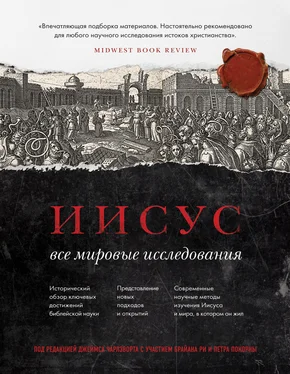
![Коллектив авторов - Что мы думаем о машинах, которые думают [Ведущие мировые ученые об искусственном интеллекте]](/books/31211/kollektiv-avtorov-chto-my-dumaem-o-mashinah-kotorye-thumb.webp)
